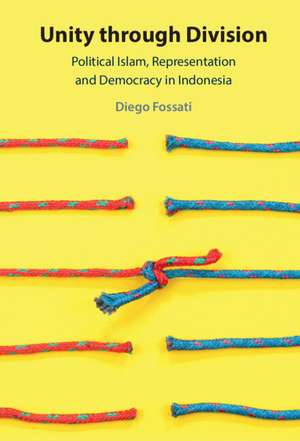Unity through Division: Political Islam, Representation and Democracy in Indonesia
Autor Diego Fossatien Limba Engleză Hardback – 21 sep 2022
Preț: 529.91 lei
Preț vechi: 575.99 lei
-8% Nou
Puncte Express: 795
Preț estimativ în valută:
101.40€ • 107.08$ • 84.38£
101.40€ • 107.08$ • 84.38£
Carte disponibilă
Livrare economică 23 decembrie 24 - 06 ianuarie 25
Livrare express 07-13 decembrie pentru 33.42 lei
Preluare comenzi: 021 569.72.76
Specificații
ISBN-13: 9781009203036
ISBN-10: 1009203037
Pagini: 250
Dimensiuni: 159 x 236 x 21 mm
Greutate: 0.53 kg
Ediția:Nouă
Editura: Cambridge University Press
Colecția Cambridge University Press
Locul publicării:New York, United States
ISBN-10: 1009203037
Pagini: 250
Dimensiuni: 159 x 236 x 21 mm
Greutate: 0.53 kg
Ediția:Nouă
Editura: Cambridge University Press
Colecția Cambridge University Press
Locul publicării:New York, United States
Cuprins
1. Introduction; 2. Explaining democratic survival in Indonesia; 3. The ideological roots of electoral politics; 4. Political elites and ideological competition; 5. Public opinion on political Islam; 6. Ideological representation; 7. Meaning and evaluation of democracy; 8. Conclusion.
Notă biografică
Descriere
With a focus on Indonesia, this book studies representation to explain why public satisfaction with democracy may increase despite democratic backsliding.
